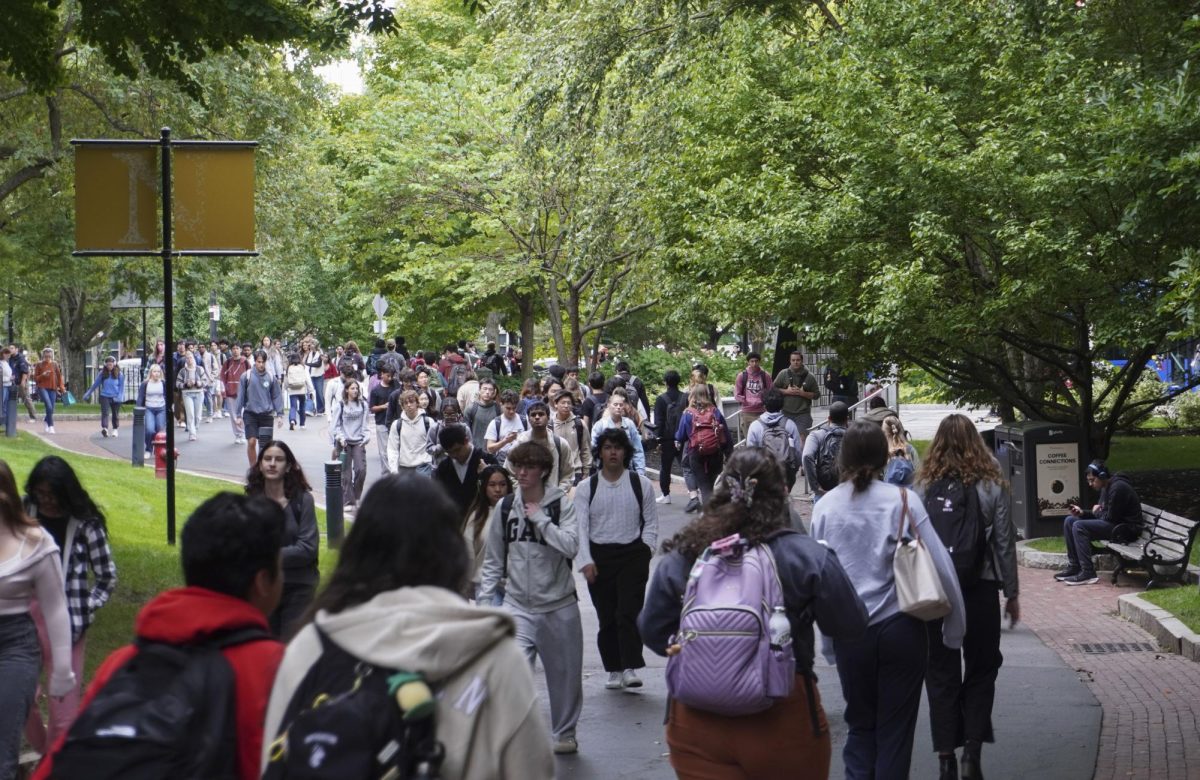At its core, this summer’s “A Mighty Heart” wasn’t only an Angelina Jolie star vehicle. The movie was a rarity in Hollywood, because the real story was scarier than any fiction.
Based on the memoir by Marianne Pearl, “A Mighty Heart” documents her struggle to save her husband, Daniel, a Wall Street Journal reporter who was abducted and subsequently killed on-camera in Pakistan after investigating suspected terrorist activity in 2002. Daniel’s brutal murder sparked an international media blitz and put a human face on a war that sometimes seemed distant.
But the recent Hollywood treatment of his death doesn’t mask the simplicity of the story: A reporter was killed for doing his job.
A free press is so ingrained in our American psyche, it’s become a comfort we often take for granted. But imagine living in China or Russia, where such a luxury is nonexistent.
Looks like that luxury at Northeastern just hit a snag. As reported by The News, the Times New Roman (TNR), the school’s humor magazine, recently pulled an issue from newsstands because it deemed potentially offensive. Among the questionable material was a story tying the Northeastern Patriot, the school’s conservative paper, to gay sex scandals and another that called President Joseph Aoun a douchebag in the headline.
Further, The News reported that when Dave Moberg, The Patriot’s editor in chief, wanted to report on the shutdown in production, he was asked by Steven Asay, the Media Board chair, in a “very heartfelt manner” to pass on reporting this bit of breaking news. (Media Board oversees campus media groups, including The News.)
Forget the $3,000 price tag that reprinting the issue cost students; monetary value is nothing compared to the moral fight we are up against. TNR editors contend it was a voluntary choice to pull the issue after a conversation with Sandra Miller, Media Board advisor. Moberg suspects indirect pressure from the powers that be. Whatever the case, it clearly creates a “chilling effect” felt harder than any Nor’easter Mother Nature may hurl at us.
Allow for a brief history lesson. A chilling effect is when speech or printed material is limited, fearing retribution from another party, like the government, or in this case, the administration. This is First Amendment 101, as any journalism major whose taken “History Of Journalism” or “Law of the Press” can tell you.
Given that TNR is a humor publication, it’s unlikely these stories would’ve caused an uproar. Perhaps Miller and Asay have lost their sense of humor. I haven’t lost mine, except this isn’t a laughing matter anymore.
For Dan Kennedy, assistant professor in the School of Journalism, the debate about student press rights is nothing new. He sees value in having Media Board oversight, noting that there’s a distinction between us, student journalists, and the journalists we aspire to become.
“To some extent, the university is the publisher,” he said. “You have a right to publish what you want, but the final decision is with the publisher, which in this case, rests with the university.









